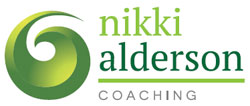Judgment Suspended
I was at the Criminal Bar long enough, training to be a qualified coach, to know that barristers can be cynical about the concept of personal development. When it came to developing so called “soft skills”, some insinuated this was indicative only that one had “gone” soft, as opposed to revealing important strengths – like empathy, active listening and emotional intelligence – to tap into and dial up.
The same attitude prevails today. I’ve seen clients, at workshops and in coaching sessions, who, when we talk about their challenges around confidence and mindset, are reluctant to acknowledge the limiting belief and even eye-roll or make a sharp intake of breath when positive affirmations are mentioned as a possible, and indeed credible, solution.
Some say they feel silly doing them – I say, “What’s the worst that could happen?!”
Results speak for themselves
What if I told you they actually do work??!
Results have demonstrated time and again that, with the temporary suspension of disbelief and engagement in the process, affirmations have the capacity to bring about an effective change in mindset and sense of empowerment. A recent client, previously sceptical, was, by the time our sessions came to a close, singing the praises of her affirmations she repeated daily as she prepared for hearings and, as a result, was experiencing a new-found surge in positive mindset and confidence.
So, what is a positive affirmation and what makes a good one?
An affirmation is a positive statement of a future intention phrased in the present tense, asserting how you want things to be, as if they were already happening now. As such, they become powerful tools in the motivation towards and achievement of your goals. They are predicated on the idea that you already have a clear idea of those goals, so it may take some thinking about before settling on the right ones for you. Allow yourself time to reflect and give yourself the opportunity to try out different ones to see which you find the most effective.
How to use an affirmation to good effect
Once you have settled on your top 3 to 5 affirmation, my recommendation is to repeat them at least once daily, better still 3 times, so they become habitual and part of your everyday routine. If you can settle on only one, commit to repeating it 3 times a day. The more you repeat them, the more they will inspire you and most importantly, the more you will believe them. Maybe you’ll choose to repeat them in your head as you brush your teeth, for example, or whilst stuck in traffic (if ever we commute to work again in these Covid days). I would regularly be seen at the traffic lights on Leeds Road driving to Bradford Crown Court, sun visor down, reading and repeating the affirmations I’d settled upon, written on a post-it note and carefully positioned on the back of that visor, to be read whenever opportunity rose.
Repetition supports you to believe these positive statements. With self-belief comes positive change. Just as you do repeat work on a muscle to build up strength, so too you can, over time, influence the mind towards better outcomes by a determined focus on affirmations.
In this way, we can use positive affirmations to eradicate negative thoughts, or at least the tendency to dwell on them or allow them to spiral out of control.
Settle on your own
There are countless affirmations accessible through a quick google search, but as I’ve mentioned, the most powerful are the ones that resonate with you. I’d recommend taking the time to come up with your own or at least choose several from other sources to try out before settling on any one with finality.
For example, you might like to test run:
- “I’ve got this”
- “Only love today”
- “I can accomplish anything I set my mind to”
- “I forgive myself for not being perfect because I am human”
It’s been said that arriving at the right one is a bit like trying dresses on to find the right fit for you. If you have the inclination, you can take some dedicated time to explore what goes into an affirmation – the desire or goal behind it, and how you might express this in a way that is concise, effective and congruent with your values. For further reading on this, see The Guide by Dr. William Holden.
And when you have your chosen 3, you’ll know. My favourite, “If it is to be, it’s up to me”, has been motivating and inspiring me for well over a decade now.
Actions speak louder than words, but words promote action
No better way to take action, by identifying the goal and making affirmations to support its achievement.
I dare you to give them a go!
Nikki Alderson Biography
Nikki Alderson, Specialist International Coach, Keynote Speaker & Best Selling Author, & former Criminal Barrister with 19 years’ experience,
- supports organisations, law firms & barristers’ Chambers to retain female talent; &
- empowers female lawyers to achieve career ambitions.
Nikki specialises in 3 areas:
- Women Leadership Transition & Change;
- Enhanced Career break returner support; &
- Workplace resilience, confidence & wellness.
She is the author of Amazon No.1 Bestseller Raising the Bar: empowering female lawyers through coaching (https://amzn.to/3fodKQX), nominee for the Inspirational Women Awards, Champion of the Year Category & finalist in the 2019 International Coaching Awards, International Coach of the Year & 2020 Women in Law Awards, Legal Services Innovator of the Year.
Follow Nikki on
https://www.linkedin.com/in/nikkialdersoncoaching/
https://twitter.com/NikkiAlderson2
https://www.facebook.com/nikkialdersoncoaching/
Or refer to www.nikkialdersoncoaching.com

